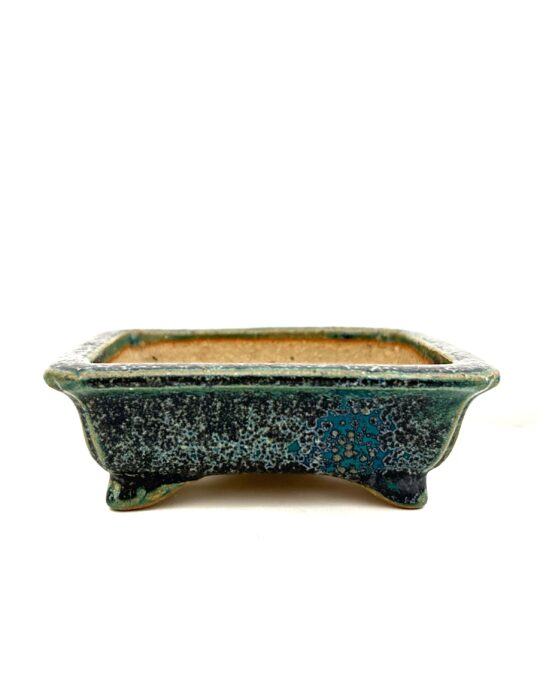Currently Empty: 0.00€
Koyo: Master of Bonsai Pottery
Aiba Kouichirou, better known as Koyo, is a legend in the world of bonsai pottery. Born in 1944 in Japan, Koyo dedicated his life to perfecting the art of bonsai pottery, achieving international recognition for his meticulous approach and distinctive glaze techniques. Founder of the Koyo Toen kiln in the Tokoname region of Japan, Koyo not only developed exceptional pieces, but also laid the foundation for a family tradition that continues today.
-
Pot Koyo green enamel mottling140.00€
The Tokoname region: history and tradition in bonsai pottery
Tokoname is known as one of Japan’s “Six Ancient Kilns” and is known for its high-quality pottery, including bonsai pots. Koyo established its kiln in this region in 1970, drawing on its rich history and material resources to develop pieces that highlight the natural appeal of bonsai. This region has been home to countless potters and is renowned worldwide for its bonsai pots that combine functionality with aesthetics.
Koyo Bonsai Pots: Technique and Style
Koyo is especially famous for its glazed pots, in particular its oribe green glaze with crystallizations, which give each piece a distinctive character. This unique glaze, combined with its crystallization technique, gives the pots a sophisticated and artistic appearance, ideal for highlighting the beauty of a bonsai. Koyo does not limit itself to glazed pots; it also creates unglazed pots, suiban (plant trays) and decorative plates, demonstrating a wide versatility and a deep knowledge of ceramics.
Types of pots and uses
Koyo bonsai pots are not only visually appealing; they are also designed to meet the specific needs of bonsai. From deep pots for larger trees to shallow pots for more delicate species, each Koyo piece is designed to support the growth and health of bonsai. Their suiban and plaques are also highly prized in the miniature garden arena, becoming works of art in their own right.
The Koyo Family: Continuing the Legacy
Koyo’s legacy has been preserved and expanded by his family. His son, Aiba Kuniaki, known in the ceramics world as Juko, was born in 1973 and has taken over the reins of the Koyo Toen kiln. Juko has continued the production of the renowned Koyo pots and has added his own personal touch, maintaining and enriching the family tradition. In addition, his mother, Aiba Kouso, also creates pots under her own signature, forming a team that continues to innovate within the world of bonsai ceramics.
Koyo and "The Big Three" by Tokoname
Koyo is considered one of the “Big Three” Tokoname potters, along with Hidemi and Eimei. This group of masters has been instrumental in the development and popularization of bonsai pottery, achieving recognition in Japan and abroad. The works of Koyo, Hidemi and Eimei represent the highest level of quality and artistry in bonsai pots, and each has contributed his unique style and technique to the bonsai community.
Conclusion
Koyo’s influence on the world of bonsai pottery is unquestionable. With a focus on traditional techniques combined with his distinctive glaze style, Koyo has created a legacy that continues to inspire potters and bonsai enthusiasts around the world. The work of his son Juko and his wife Kouso ensures that the Koyo Toen kiln continues to produce high-quality pieces that are highly valued for both their functionality and artistic value.
For those looking for high quality, heritage pieces in bonsai pottery, Koyo pots represent an ideal choice. They are not just bonsai containers; each pot tells a story of tradition, technique and passion for the art of bonsai.


